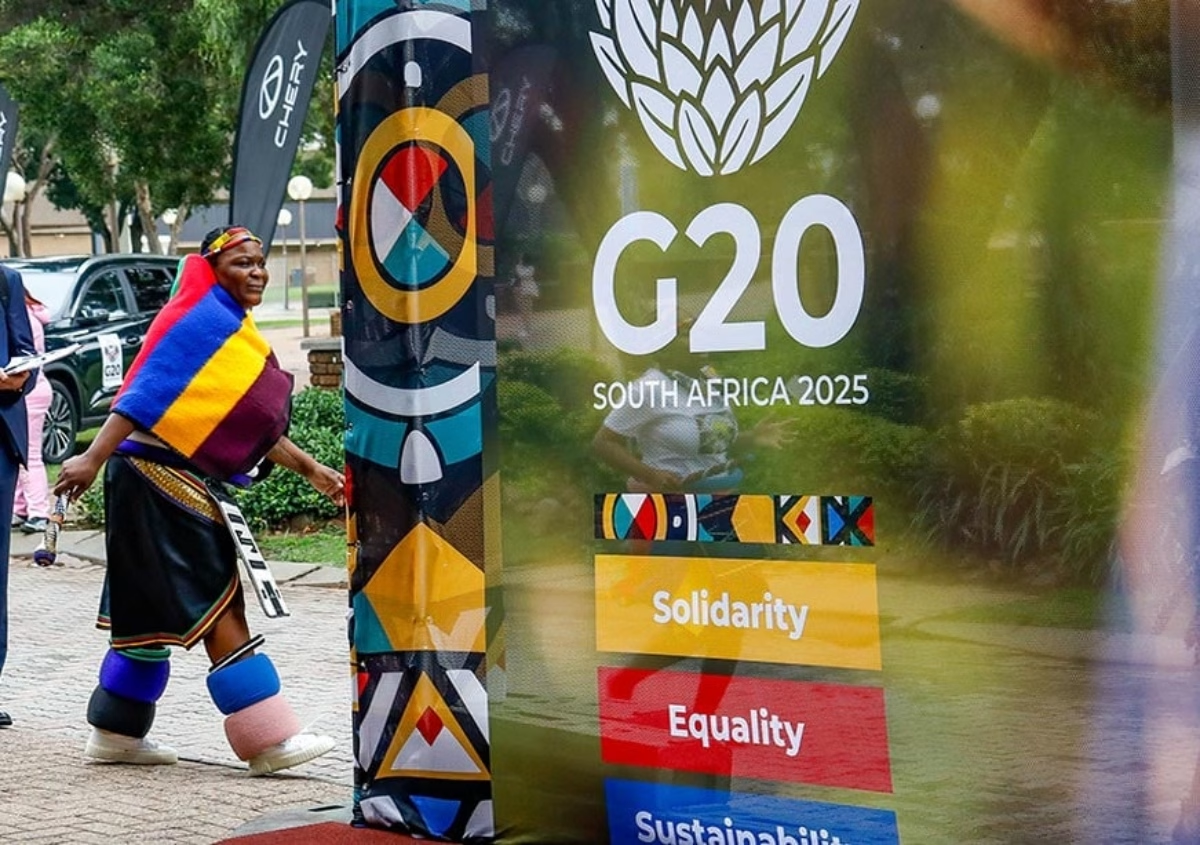By Hennie de Villiers
Africa’s population is projected to exceed 1.7 billion by 2030, one of the youngest and mobile-first populations on the planet, making the continent fertile ground for the reimagining of financial services.
But Africa also sits at a crossroads: an accelerating trajectory of digital innovation challenged by deep digital divides, including access and infrastructure, affordability, digital literacy and regulatory constraints. If not addressed with urgency and scale, millions could be locked out of economic progress.
The upcoming G20 Summit in Johannesburg represents a vital moment for the continent to address these challenges and serve as the platform to showcase emerging markets as a potential digital powerhouse. The stakes could not be higher. If this digital divide is left unaddressed, Africa will be excluded from the gains of the Fourth Industrial Revolution.
From aspiration to action
Africa’s economic transformation depends on building inclusive, scalable, and context-aware digital ecosystems. This is not about exporting one-size-fits-all technology. It is about enabling financial access through methods that work in each market.
In Nigeria, that means implementing Unstructured Supplementary Service Data (USSD) services; in Morocco, it’s fully digital claims platforms. Across the continent, commitments and actions to address the infrastructure and talent gaps that inhibit progress are being made and taken.
For example, Nairobi’s iHub, a physical and intellectual backbone for innovation, is pioneering incubation spaces, catalysing the growth of a regional tech ecosystem. In addition, the Pan-African Payment and Settlement System (PAPSS) developed by the African Export-Import Bank (Afreximbank) and the African Union, acts as a centralised financial market infrastructure for enabling instant cross-border payments in local African currencies.
Success requires empowering local teams with appropriate digital tools and ensuring they are responsive to on-the-ground realities. From technology hubs emerging across major cities to the development of shared digital platforms that simplify regulatory compliance across more than 30 jurisdictions, Africa is designing for scale and agility across the continent.
Partnerships and fintech ecosystems
Africa’s fintech revolution is one of the most exciting and disruptive developments in global finance. Yet its potential will be fully realised only through meaningful partnerships between traditional financial institutions, startups, telcos and governments. Industry leaders see these partnerships not as competition, but as catalysts for extending access, innovation and resilience.
Mobile technology is increasingly being used to provide access to financial services to the large under-served sections of the respective markets. This includes mobile money, loans, payments and insurance. For example, SanlamAllianz Ghana provides hospital, accident and funeral cover to around 1.2m customers via aYo Intermediaries Ghana, in partnership with MTN & MoMo Ghana.
Successful partnerships between telecommunication companies and financial institutions are leveraging the reach of telcos to bring insurance to millions who have never had it before. These are the kinds of ecosystems the B20 is actively championing that close protection gaps, enable micro-finance and serve the needs of the informal economy that drives so much of Africa’s GDP.
Countries such as Vietnam and India have underlined the critical role fintech plays in driving financial inclusion in emerging markets. Their success stories offer Africa a roadmap but only if we invest in the infrastructure and policy frameworks to support similar growth here.
Building a digital decade
We are entering a decade where success in financial services will be defined not by scale alone, but by how effectively organisations can deploy technology to deliver value, rapidly adapt to consumer behaviour and build trust across borders. For example, in several countries SanlamAllianz offers digital self-service capabilities to both end customers and insurance agents and brokers, driving operational efficiency, accelerating service delivery, and elevating customer experience. It also extends reach to rural areas.
African institutions and are indeed increasingly embracing AI and cloud technologies not for hype, but for practical, scalable solutions.

From facilitating the increasing adoption of tools like GitHub Copilot to improving customer service and driving productivity, the continent is seeing an expanded embrace of advanced technologies that can be adapted and scaled quickly across diverse markets.
Innovation is not a buzzword. It must be embedded into the corporate culture, rewarded and championed. It is how organisations can attract the talent needed to power their digital ambitions and remain relevant in an increasingly competitive financial services environment.
Bridge the gap
Technology is not a luxury in Africa, it is a lifeline. It enables access to healthcare, insurance, savings, pensions and credit. But it cannot solve these challenges in isolation. The B20 is advocating for Africa not as a passive recipient of development, but as an active architect of its digital destiny.
That means investing in digital public infrastructure, supporting regional innovation ecosystems, and creating regulatory environments that balance protection with agility. It means recognising that the Global South is where some of the most dynamic innovation is happening and amplifying it through global partnerships.
The future will not wait. Neither will Africa’s young population. It is time to close the gap not with words, but with decisive action.











